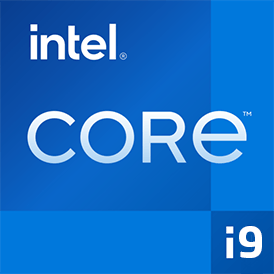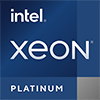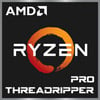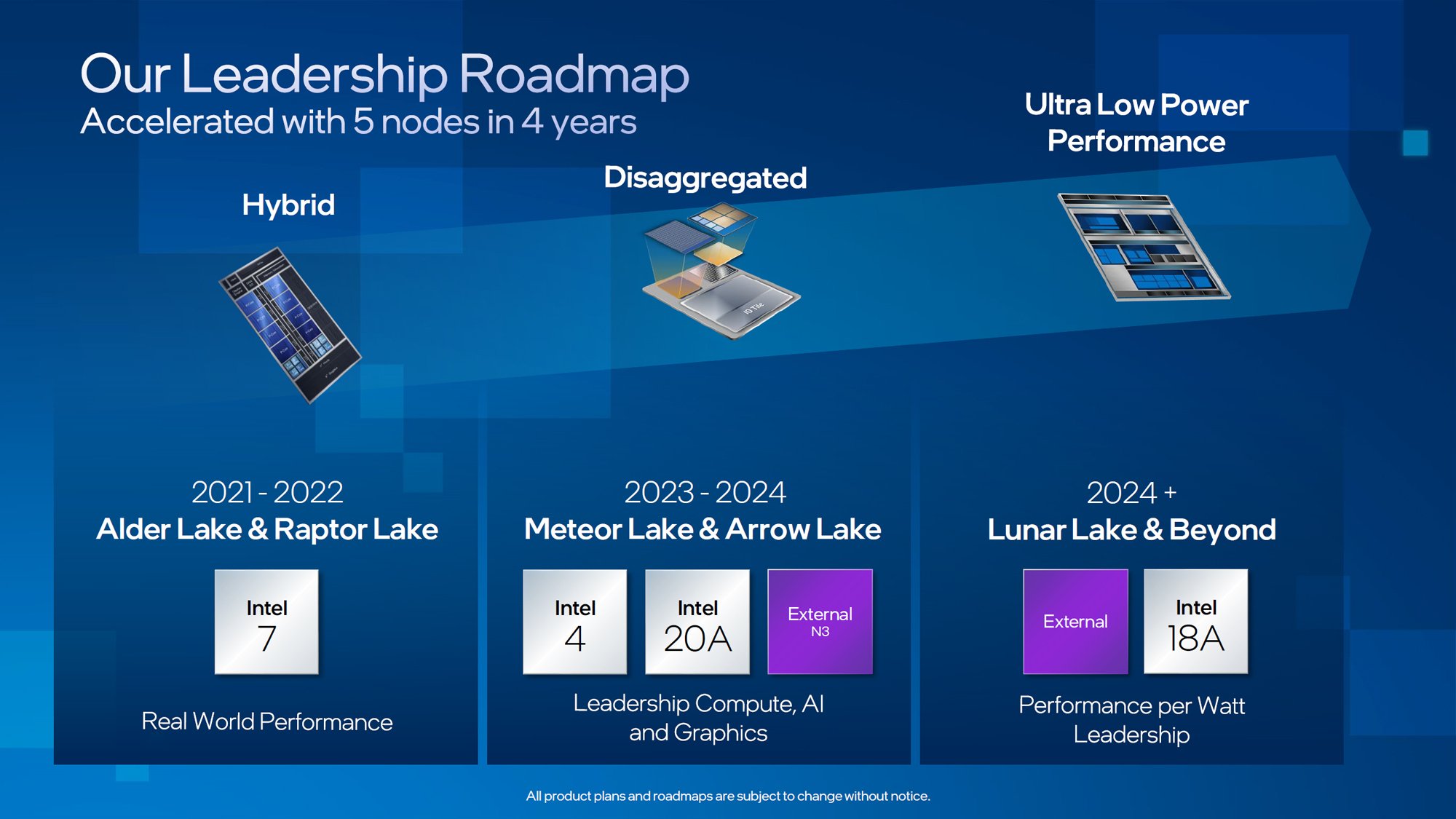
Intel Core i9-13900 Benchmark, Test and specs
Last updated:
The Intel Core i9-13900 has 24 cores with 32 threads and is based on the 13. gen of the Intel Core i9 series. The processor uses a mainboard with the LGA 1700 socket and was released in Q1/2023. The Intel Core i9-13900 scores 2,130 points in the Geekbench 5 single-core benchmark. In the Geekbench 5 multi-core benchmark, the result is 19,422 points.

| Name: | Intel Core i9-13900 |
|---|---|
| Family: | Intel Core i9 (78) |
| CPU group: | Intel Core i 13000 (17) |
| Architecture: | Raptor Lake S |
| Segment: | Desktop / Server |
| Generation: | 13 |
| Predecessor: | Intel Core i9-12900 |
| Successor: | Intel Core i9-14900 |
CPU Cores and Base Frequency
The Intel Core i9-13900 has 24 CPU cores and can calculate 32 threads in parallel. The clock frequency of the Intel Core i9-13900 is 2.00 GHz (5.60 GHz). The number of CPU cores greatly affects the speed of the processor and is an important performance indicator.
| CPU Cores / Threads: | 24 / 32 |
|---|---|
| Core architecture: | hybrid (big.LITTLE) |
| A-Core: | 8x Raptor Cove |
| B-Core: | 16x Gracemont |
| Hyperthreading / SMT: | Yes |
|---|---|
| Overclocking: | No |
| A-Core Frequency: | 2.00 GHz (5.60 GHz) |
| B-Core Frequency: | 1.50 GHz (4.20 GHz) |
Internal Graphics
The Intel Core i9-13900 has integrated graphics, called iGPU for short. Specifically, the Intel Core i9-13900 uses the Intel UHD Graphics 770, which has 256 texture shaders and 32 execution units. The iGPU uses the system's main memory as graphics memory and sits on the processor's die.
| GPU name: | Intel UHD Graphics 770 |
|---|---|
| GPU frequency: | 0.30 GHz |
| GPU (Turbo): | 1.65 GHz |
| Compute units: | 32 |
| Shader: | 256 |
| Hardware Raytracing: | No |
| Release date: | Q4/2021 |
| Max. displays: | 3 |
|---|---|
| Generation: | 11 |
| Direct X: | 12 |
| Technology: | 10 nm |
| Max. GPU Memory: | 64 GB |
| Frame Generation: | No |
Hardware codec support
A photo or video codec that is accelerated in hardware can greatly accelerate the working speed of a processor and extend the battery life of notebooks or smartphones when playing videos.
| h265 / HEVC (8 bit): | Decode / Encode |
|---|---|
| h265 / HEVC (10 bit): | Decode / Encode |
| h264: | Decode / Encode |
| VP8: | Decode / Encode |
| VP9: | Decode / Encode |
| AV1: | Decode |
|---|---|
| AVC: | Decode / Encode |
| VC-1: | Decode |
| JPEG: | Decode / Encode |
Memory & PCIeThe processor can use up to 192 GB memory in 2 (Dual Channel) memory channels. The maximum memory bandwidth is 89.6 GB/s. The memory type as well as the amount of memory can greatly affect the speed of the system. |
|
| Memory type: | Memory bandwidth: |
|---|---|
| DDR5-5600 DDR4-3200 | 89.6 GB/s 51.2 GB/s |
| Max. Memory: | 192 GB |
| Memory channels: | 2 (Dual Channel) |
| ECC: | Yes |
| PCIe: | 5.0 x 20 |
| PCIe Bandwidth: | 78.8 GB/s |
Thermal ManagementThe thermal design power (TDP for short) of the processor is 65 W. The TDP specifies the necessary cooling solution that is required to cool the processor sufficiently. The TDP usually gives a rough idea of the actual power consumption of the CPU. |
|
|---|---|
| TDP (PL1 / PBP): | 65 W |
| TDP (PL2): | 219 W |
| TDP up: | -- |
| TDP down: | -- |
| Tjunction max.: | 100 °C |
Technical details
The Intel Core i9-13900 is made in 10 nm. The smaller the manufacturing process of a CPU, the more modern and energy-efficient it is. Overall, the processor has 68.00 MB cache. A large cache can greatly speed up the processor's speed in some cases such as games.
| Technology: | 10 nm |
|---|---|
| Chip design: | Monolithic |
| Socket: | LGA 1700 |
| L2-Cache: | 32.00 MB |
| L3-Cache: | 36.00 MB |
| AES-NI: | Yes |
| Operating systems: | Windows 10, Windows 11, Linux |
| Virtualization: | VT-x, VT-x EPT, VT-d |
|---|---|
| Instruction set (ISA): | x86-64 (64 bit) |
| ISA extensions: | SSE4.1, SSE4.2, AVX2, AVX2+ |
| Release date: | Q1/2023 |
| Release price: | 549 $ |
| Part Number: | -- |
| Documents: | Technical data sheet |
Rate this processor
Benchmark results

The benchmark results for the Intel Core i9-13900 have been carefully checked by us. We only publish benchmark results that have been created by us or that have been submitted by a visitor and then checked by a team member. All results are based on and fullfill our benchmark guidelines.
Screenshots:
Screenshots:
Cinebench 2024 (Single-Core)
The Cinebench 2024 benchmark is based on the Redshift rendering engine, which is also used in Maxon's 3D program Cinema 4D. The benchmark runs are each 10 minutes long to test whether the processor is limited by its heat generation.

|
AMD Ryzen 9 7900X
12C 24T @ 5.60 GHz |
||

|
AMD Ryzen 9 7900X3D
12C 24T @ 5.60 GHz |
||

|
Apple M2 Pro (12-CPU 19-GPU)
12C 12T @ 3.50 GHz |
||
|
|
Intel Core i9-13900
24C 32T @ 5.60 GHz |
||

|
Apple M2 Max (30-GPU)
12C 12T @ 3.50 GHz |
||

|
AMD Ryzen 9 7950X3D
16C 32T @ 5.70 GHz |
||

|
Apple M2 Max (38-GPU)
12C 12T @ 3.50 GHz |
||
Cinebench 2024 (Multi-Core)
The Multi-Core test of the Cinebench 2024 benchmark uses all cpu cores to render using the Redshift rendering engine, which is also used in Maxons Cinema 4D. The benchmark run is 10 minutes long to test whether the processor is limited by its heat generation.

|
AMD Ryzen 9 7900
12C 24T @ 5.40 GHz |
||

|
Apple M1 Ultra (48-GPU)
20C 20T @ 3.20 GHz |
||

|
Apple M1 Ultra (64-GPU)
20C 20T @ 3.20 GHz |
||
|
|
Intel Core i9-13900
24C 32T @ 5.60 GHz |
||

|
Intel Core i9-13900F
24C 32T @ 5.60 GHz |
||

|
Apple M3 Max (16-CPU 40-GPU)
16C 16T @ 4.06 GHz |
||

|
Intel Core i7-13700KF
16C 24T @ 5.40 GHz |
||
Cinebench R23 (Single-Core)
Cinebench R23 is the successor of Cinebench R20 and is also based on the Cinema 4 Suite. Cinema 4 is a worldwide used software to create 3D forms. The single-core test only uses one CPU core, the amount of cores or hyperthreading ability doesn't count.

|
Intel Core i9-13900K
24C 32T @ 5.80 GHz |
||

|
Intel Core i7-14700K
20C 28T @ 5.60 GHz |
||

|
Intel Core i7-14700KF
20C 28T @ 5.60 GHz |
||
|
|
Intel Core i9-13900
24C 32T @ 5.60 GHz |
||

|
Intel Core i9-13900F
24C 32T @ 5.60 GHz |
||

|
Intel Core i9-13980HX
24C 32T @ 5.60 GHz |
||

|
Intel Core i7-13700KF
16C 24T @ 5.40 GHz |
||
Cinebench R23 (Multi-Core)
Cinebench R23 is the successor of Cinebench R20 and is also based on the Cinema 4 Suite. Cinema 4 is a worldwide used software to create 3D forms. The multi-core test involves all CPU cores and taks a big advantage of hyperthreading.

|
AMD Ryzen 9 7940HX
16C 32T @ 2.30 GHzNot verified |
||

|
AMD Ryzen Threadripper 2990WX
32C 64T @ 3.00 GHz |
||

|
AMD Ryzen 9 7945HX
16C 32T @ 2.50 GHz |
||
|
|
Intel Core i9-13900
24C 32T @ 5.30 GHz |
||

|
Intel Core i9-13900F
24C 32T @ 5.30 GHz |
||

|
Intel Core i9-13950HX
24C 32T @ 4.80 GHz |
||

|
Intel Core i9-13980HX
24C 32T @ 4.90 GHz |
||
Geekbench 5, 64bit (Single-Core)
Geekbench 5 is a cross plattform benchmark that heavily uses the systems memory. A fast memory will push the result a lot. The single-core test only uses one CPU core, the amount of cores or hyperthreading ability doesn't count.

|
Apple A17 Pro
6C 6T @ 3.78 GHz |
||

|
AMD Ryzen 9 7945HX3D
16C 32T @ 5.40 GHz |
||

|
AMD Ryzen 7 7800X3D
8C 16T @ 5.00 GHz |
||
|
|
Intel Core i9-13900
24C 32T @ 5.60 GHz |
||

|
AMD Ryzen 9 7945HX
16C 32T @ 5.40 GHz |
||

|
Intel Core i9-13900F
24C 32T @ 5.60 GHz |
||

|
Intel Core i9-13980HX
24C 32T @ 5.60 GHz |
||
Geekbench 5, 64bit (Multi-Core)
Geekbench 5 is a cross plattform benchmark that heavily uses the systems memory. A fast memory will push the result a lot. The multi-core test involves all CPU cores and taks a big advantage of hyperthreading.

|
Intel Core i9-13980HX
24C 32T @ 4.90 GHz |
||

|
Intel Core i9-13950HX
24C 32T @ 4.80 GHz |
||

|
AMD Ryzen 9 7945HX
16C 32T @ 2.50 GHz |
||
|
|
Intel Core i9-13900
24C 32T @ 5.30 GHz |
||

|
Intel Core i9-13900F
24C 32T @ 5.30 GHz |
||

|
Intel Xeon Platinum 8260Y
24C 48T @ 2.40 GHz |
||

|
Intel Core i7-14700F
20C 28T @ 5.30 GHz |
||
Geekbench 6 (Single-Core)
Geekbench 6 is a benchmark for modern computers, notebooks and smartphones. What is new is an optimized utilization of newer CPU architectures, e.g. based on the big.LITTLE concept and combining CPU cores of different sizes. The single-core benchmark only evaluates the performance of the fastest CPU core, the number of CPU cores in a processor is irrelevant here.

|
AMD Ryzen 7 7700X
8C 16T @ 5.40 GHz |
||

|
AMD Ryzen Threadripper 7980X
64C 128T @ 5.10 GHz |
||

|
AMD Ryzen 9 7900X3D
12C 24T @ 5.60 GHz |
||
|
|
Intel Core i9-13900
24C 32T @ 5.60 GHz |
||

|
Intel Core i9-13900KF
24C 32T @ 5.80 GHz |
||

|
Intel Core i9-13900K
24C 32T @ 5.80 GHz |
||

|
Intel Core i7-14700HX
20C 28T @ 5.50 GHz |
||
Geekbench 6 (Multi-Core)
Geekbench 6 is a benchmark for modern computers, notebooks and smartphones. What is new is an optimized utilization of newer CPU architectures, e.g. based on the big.LITTLE concept and combining CPU cores of different sizes. The multi-core benchmark evaluates the performance of all of the processor's CPU cores. Virtual thread improvements such as AMD SMT or Intel's Hyper-Threading have a positive impact on the benchmark result.

|
AMD Ryzen Threadripper PRO 5975WX
32C 64T @ 4.00 GHz |
||

|
Intel Core i7-14700K
20C 28T @ 5.30 GHz |
||

|
Intel Core i7-14700KF
20C 28T @ 5.30 GHz |
||
|
|
Intel Core i9-13900
24C 32T @ 5.30 GHz |
||

|
Intel Xeon Gold 6442Y
24C 48T @ 2.00 GHz |
||

|
AMD Ryzen Threadripper PRO 7975WX
32C 64T @ 4.00 GHz |
||

|
AMD Ryzen 9 7950X3D
16C 32T @ 5.00 GHz |
||
Cinebench R20 (Single-Core)
Cinebench R20 is the successor of Cinebench R15 and is also based on the Cinema 4 Suite. Cinema 4 is a worldwide used software to create 3D forms. The single-core test only uses one CPU core, the amount of cores or hyperthreading ability doesn't count.

|
Intel Core i9-13900KS
24C 32T @ 6.00 GHz |
||

|
Intel Core i9-13900K
24C 32T @ 5.80 GHz |
||

|
Intel Core i9-13900KF
24C 32T @ 5.80 GHz |
||
|
|
Intel Core i9-13900
24C 32T @ 5.60 GHz |
||

|
Intel Core i9-13900F
24C 32T @ 5.60 GHz |
||

|
Intel Core i7-13700KF
16C 24T @ 5.40 GHz |
||

|
Intel Core i7-13700K
16C 24T @ 5.40 GHz |
||
Cinebench R20 (Multi-Core)
Cinebench R20 is the successor of Cinebench R15 and is also based on the Cinema 4 Suite. Cinema 4 is a worldwide used software to create 3D forms. The multi-core test involves all CPU cores and taks a big advantage of hyperthreading.

|
AMD Ryzen 9 7945HX
16C 32T @ 2.50 GHz |
||

|
Intel Core i9-14900
24C 32T @ 5.40 GHz |
||

|
Intel Core i9-14900F
24C 32T @ 5.40 GHz |
||
|
|
Intel Core i9-13900
24C 32T @ 5.30 GHz |
||

|
Intel Core i9-13900F
24C 32T @ 5.30 GHz |
||

|
Intel Core i9-13950HX
24C 32T @ 4.80 GHz |
||

|
Intel Core i7-13700KF
16C 24T @ 5.30 GHz |
||
iGPU - FP32 Performance (Single-precision GFLOPS)
The theoretical computing performance of the internal graphics unit of the processor with simple accuracy (32 bit) in GFLOPS. GFLOPS indicates how many billion floating point operations the iGPU can perform per second.

|
Intel Core i3-12300HE
Intel UHD Graphics 12th Gen (48 EU) @ 1.15 GHz |
||

|
Intel Core i3-12300HL
Intel UHD Graphics 12th Gen (48 EU) @ 1.15 GHz |
||

|
Intel Core i7-4770R
Intel Iris Pro Graphics 5200 @ 1.35 GHz |
||
|
|
Intel Core i9-13900
Intel UHD Graphics 770 @ 1.65 GHz |
||

|
Intel Core i9-14900KS
Intel UHD Graphics 770 @ 1.65 GHz |
||

|
Intel Core i9-14900T
Intel UHD Graphics 770 @ 1.65 GHz |
||

|
Intel Core i9-14900
Intel UHD Graphics 770 @ 1.65 GHz |
||
Estimated results for PassMark CPU Mark
Some of the CPUs listed below have been benchmarked by CPU-monkey. However the majority of CPUs have not been tested and the results have been estimated by a CPU-monkey’s secret proprietary formula. As such they do not accurately reflect the actual Passmark CPU mark values and are not endorsed by PassMark Software Pty Ltd.

|
AMD EPYC 7532
32C 64T @ 2.90 GHz |
||

|
Intel Xeon Platinum 8358
32C 64T @ 3.00 GHz |
||

|
AMD EPYC 7443
24C 48T @ 3.60 GHz |
||
|
|
Intel Core i9-13900
24C 32T @ 5.30 GHz |
||

|
Intel Core i9-13900F
24C 32T @ 5.30 GHz |
||

|
Intel Core i7-14700KF
20C 28T @ 5.30 GHz |
||

|
Intel Core i7-14700K
20C 28T @ 5.30 GHz |
||
CPU-Z Benchmark 17 (Single-Core)
The CPU-Z benchmark measures a processor's performance by measuring the time it takes the system to complete all benchmark calculations. The faster the benchmark is completed, the higher the score.

|
Intel Core i7-14700K
20C 28T @ 5.30 GHz |
||

|
Intel Core i9-13900K
24C 32T @ 5.50 GHz |
||

|
Intel Core i9-13900KF
24C 32T @ 5.50 GHz |
||
|
|
Intel Core i9-13900
24C 32T @ 5.30 GHz |
||

|
Intel Core i9-13900F
24C 32T @ 5.30 GHz |
||

|
Intel Core i5-13600KF
14C 20T @ 5.10 GHz |
||

|
Intel Core i5-13600K
14C 20T @ 5.10 GHz |
||
CPU-Z Benchmark 17 (Multi-Core)
The CPU-Z benchmark measures a processor's performance by measuring the time it takes the system to complete all benchmark calculations. The faster the benchmark is completed, the higher the score.

|
AMD Ryzen Threadripper PRO 3955WX
16C 32T @ 3.90 GHz |
||

|
AMD Ryzen 9 3950X
16C 32T @ 3.50 GHz |
||

|
Intel Core i9-7980XE
18C 36T @ 2.60 GHz |
||
|
|
Intel Core i9-13900
24C 32T @ 2.00 GHz |
||

|
Intel Core i9-13900F
24C 32T @ 2.00 GHz |
||

|
Intel Core i5-13600KF
14C 20T @ 3.50 GHz |
||

|
Intel Core i5-13600K
14C 20T @ 3.50 GHz |
||
Benchmarks

Cinebench 2024 (SC)
272 entries
272 entries

Cinebench 2024 (MC)
271 entries
271 entries

Cinebench R23 (SC)
586 entries
586 entries

Cinebench R23 (MC)
565 entries
565 entries

Geekbench 5 (SC)
2,488 entries
2,488 entries

Geekbench 5 (MC)
2,461 entries
2,461 entries

Geekbench 6 (SC)
1,755 entries
1,755 entries

Geekbench 6 (MC)
1,703 entries
1,703 entries

Cinebench R20 (SC)
656 entries
656 entries

Cinebench R20 (MC)
604 entries
604 entries

FP32 SP (iGPU)
2,042 entries
2,042 entries

3DMark Timespy (iGPU)
516 entries
516 entries

PassMark CPU-Mark
2,392 entries
2,392 entries

CPU-Z Benchmark 17 (SC)
231 entries
231 entries

CPU-Z Benchmark 17 (MC)
733 entries
733 entries
News and articles for the Intel Core i9-13900
Description of the processor
The Intel Core i9-13900 is a processor that belongs to the thirteenth generation of the Intel Core i9 family and is the direct successor to the Intel Core i9-12900. It came onto the market in the first quarter of 2023 and is manufactured with a structure width of 10 nanometers. It is based on the Raptor Lake S architecture and comes from the desktop segment of Intels CPU program. The processor is equipped with a 32.00 megabyte level 2 cache and a 36.00 megabyte level 3 cache and requires a motherboard that is equipped with the LGA 1700 socket.The processor cores of the Intel Core i9-13900 are arranged in a hybrid core architecture. In total it has 24 processor cores, which are divided into 8 performance cores of the Raptor Cove type and 16 efficiency cores of the Gracemont type. The performance cores clock at up to 5.60 gigahertz and are used when a lot of computing power is required. The efficiency cores clock at up to 4.20 gigahertz and are used when less computing power is required, thus saving energy. Hyperthreading is only supported by the Raptor Cove cores, so the Intel Core i9-13900 has a maximum of 32 computing threads available. If you want to overclock your processor, you have to use the Intel Core i9-13900K, because the Intel Core i9-13900 does not support that.
The Intel UHD Graphic 770 is used as the internal graphics unit in the Intel Core i9-13900. This graphics unit has 32 execution units with 256 shaders and can supply up to 3 monitors with one image. The iGPU was integrated into a CPU for the first time in the fourth quarter of 2021, but it is also already manufactured using the 10 nanometer process. The maximum clock speed of the graphics unit is 1.65 gigahertz and it can use up to 64 gigabytes of the systems built-in RAM as graphics memory.
In total, the Intel Core i9-13900 can be operated with up to 192 gigabytes of DDR4-3200 or DDR5-5600 RAM.
Popular comparisons
back to index






